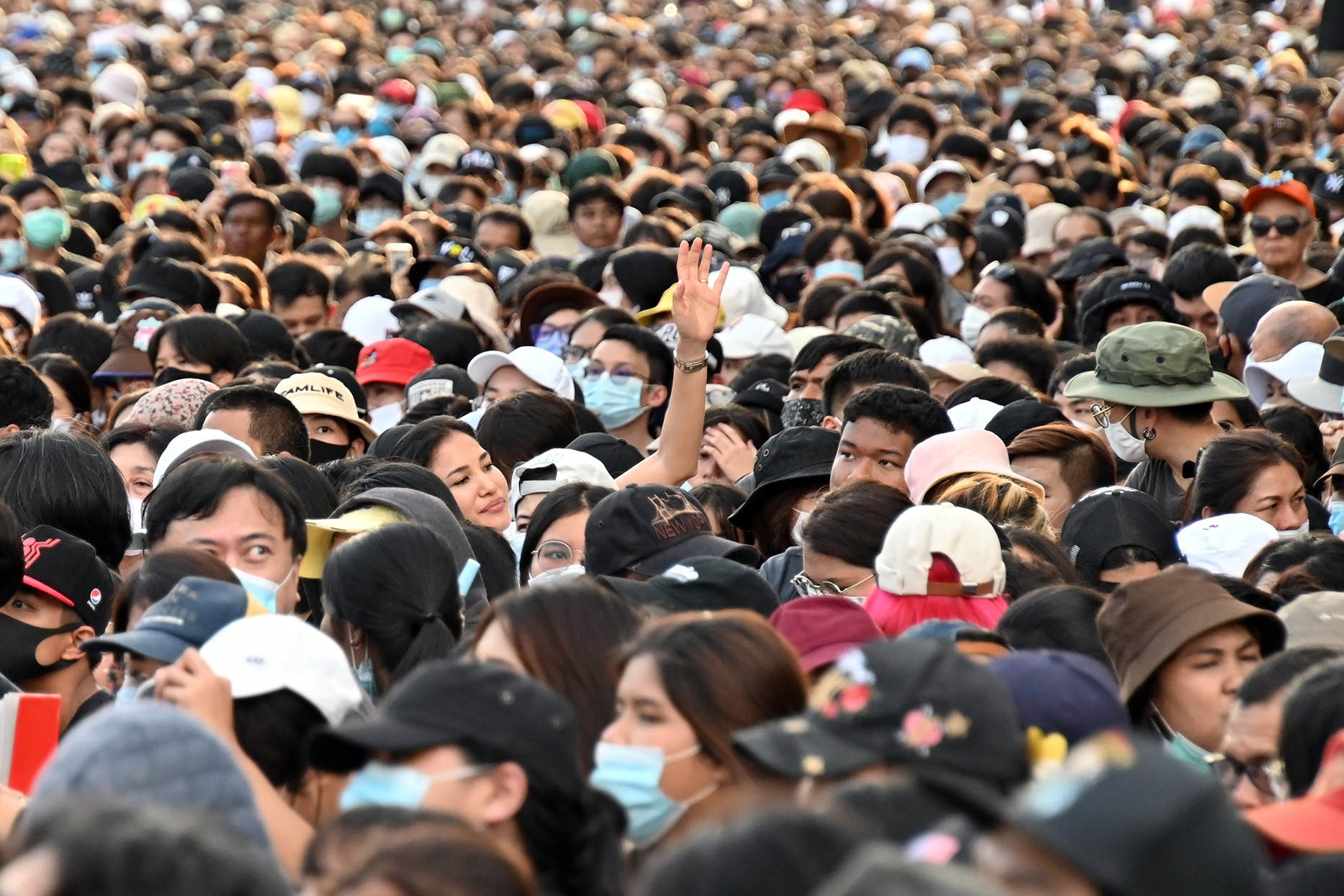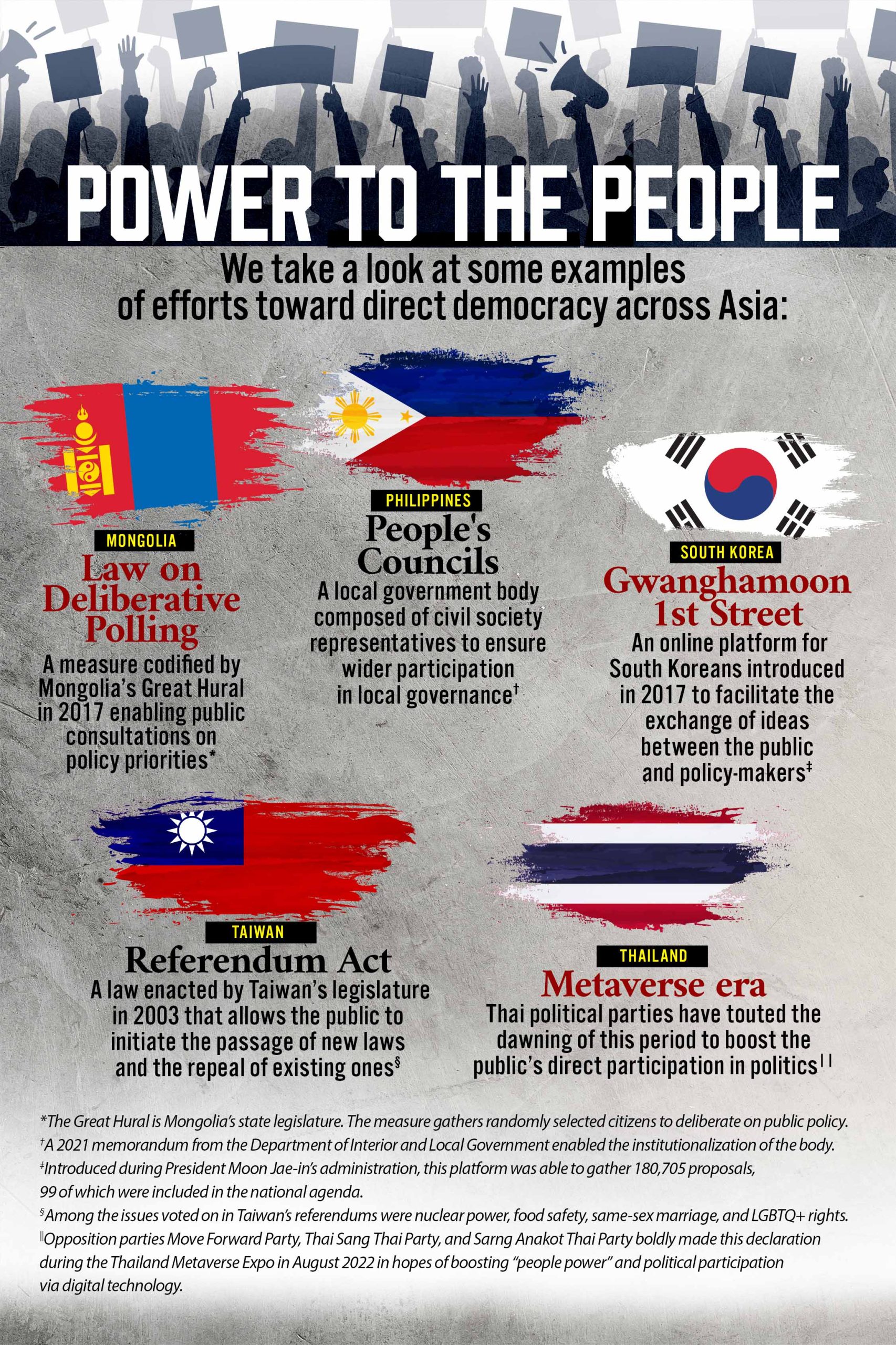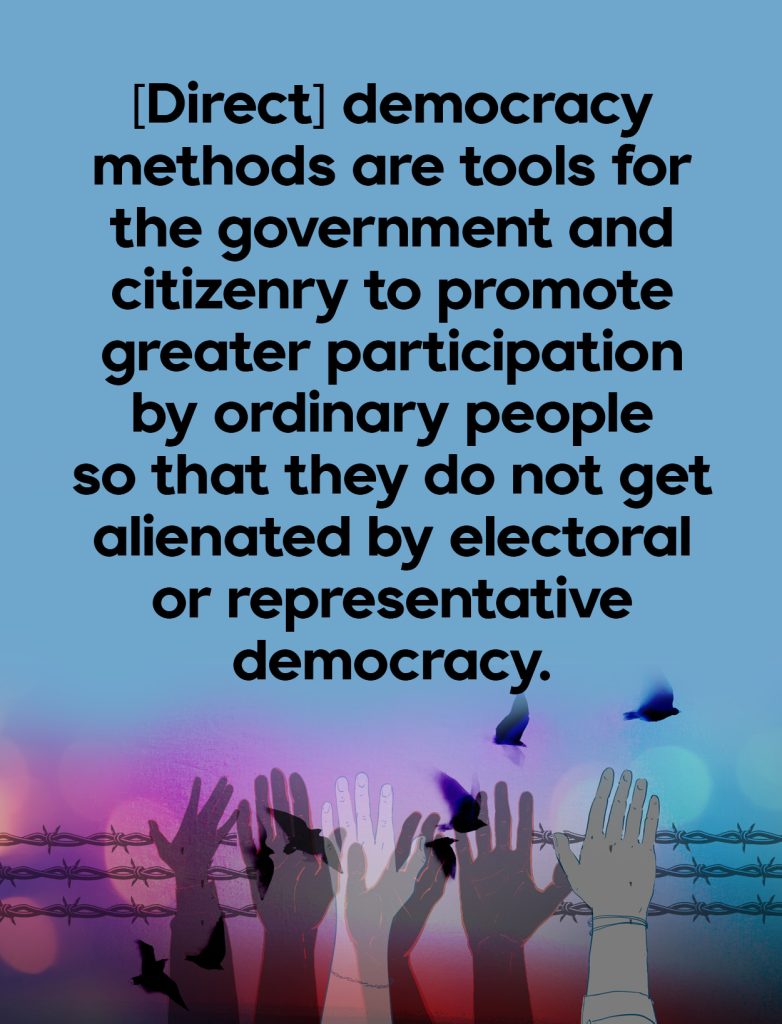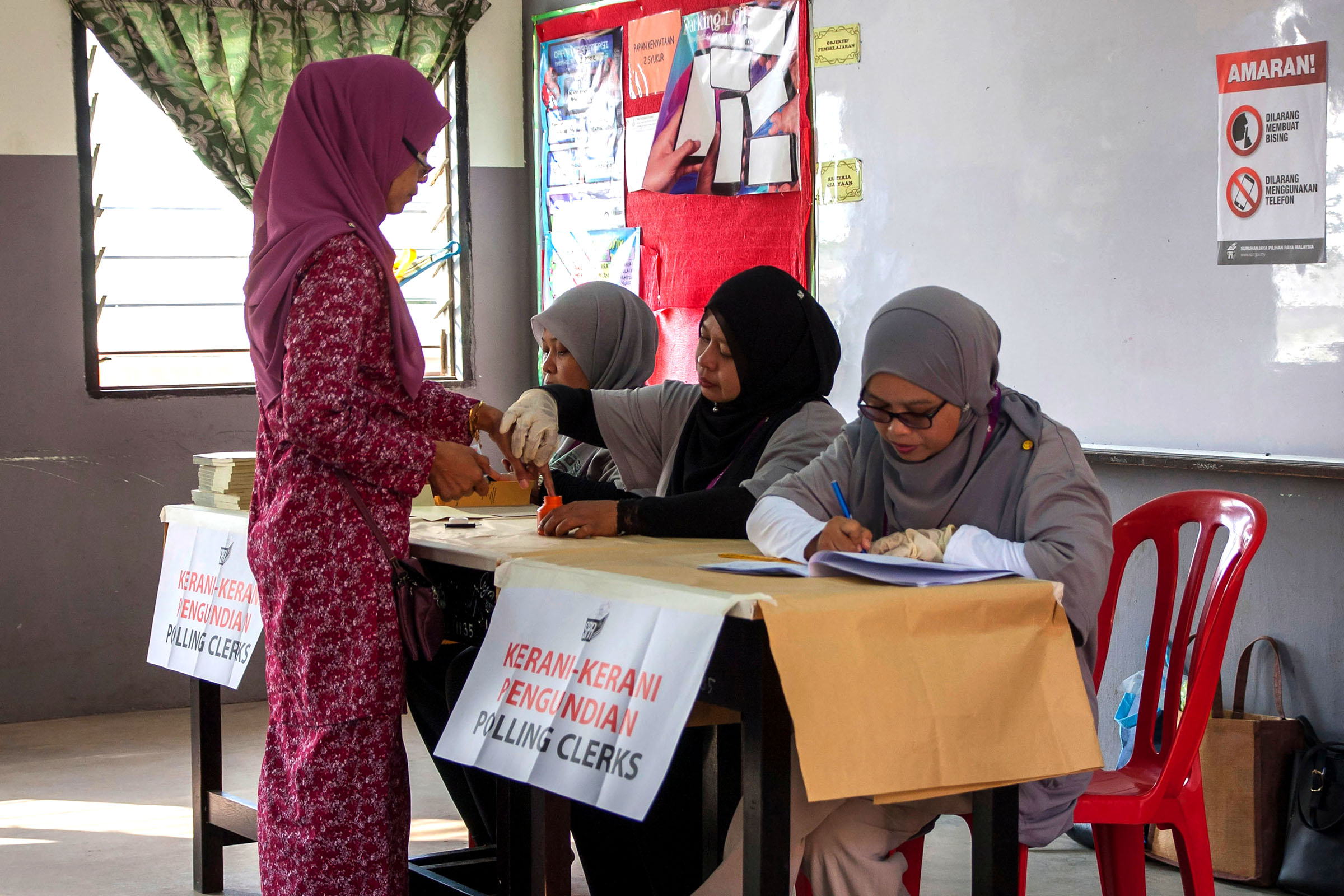|
Getting your Trinity Audio player ready...
|
A
nti-democratic populist sentiments and declining political participation are haunting the liberal democracies of the West, as is most apparent in the United States. The same trends have occurred, too, in other Western countries such as the United Kingdom, Netherlands, Austria, and Italy, among others.
In response, a “direct democracy” movement has emerged, and was the brunt of the discussions during the Global Forum on Modern Direct Democracy held in March in Mexico City – where it was revealed that Latin American countries have also taken to direct democracy.
But this is less apparent in Asia and other parts of the Global South.

What is direct democracy?
The presenters discussed the revocation of the president’s mandate in Mexico while he was still in office, the recent constitutional referendum in Chile, the plebiscite on the peace accords between the government and the rebels in Colombia to put an end to the decades-long conflict, Uruguay’s long history with stable referendums, and Peru’s recalls at the local levels of government and referendums.
As the list suggests, direct democracy is about participating in the decision-making process in between general elections every four or five years. It includes revoking the president’s mandate, voting to amend the constitution, or supporting or rejecting a major initiative like ending a conflict with rebels like in Colombia. Such initiatives provide opportunities for ordinary people to take part in important political and policy decisions, apart from casting their crucial vote every four to five years to elect a president or members of the legislature.
Put another way, direct democracy methods are tools for the government and citizenry to promote greater participation by ordinary people so that they do not get alienated by electoral or representative democracy, which has been captured by the professional politicians, often acting on behalf of big businesses and interests.
A close look at Mexico and Malaysia
Mexico’s electoral democracy is a prime example of how direct democracy might have helped facilitate reforms. From 1929 to 2000, the country had been dominated by a single party, the Revolutionary Institutional Party (PRI), which won the elections time and time again.
When PRI was finally defeated, predictably political instability set in. New parties appeared and new coalition governments had to be formed. But the new center was not as much in control of political developments as before.

PRI’s long domination can be likened to Barisan Nasional (BN)’s six decades of one-party rule in Malaysia.
The instability that Mexico experienced with PRI’s “passing” was not unlike what we are witnessing here in Malaysia – an elected government lasting only 22 months before it was ousted by a backdoor coup. Then, two prime ministers were appointed in a period of two years. In the recent 2022 general election, we ended up with a hung parliament with no coalition gaining a majority of seats. The largest coalition had to cobble together a makeshift government made up of former sworn enemies. This minority government includes several individuals facing corruption charges too.
But there are also clear differences. In Mexico, serious measures to promote decentralization to state and local governments have occurred and has led as well to decentralization in decision-making. This can open up and lead to new opportunities for ordinary people to take part in local politics in sustained fashion.
Enhancing local government is yet another form of direct democracy. In Mexico, the consolidation of an independent National Elections Institute, the equivalent of Malaysia’s Election Commission, has enabled new groups to get elected and to make a difference, at least at the local level. Apparently, the old style of politics dominated by caciques (local or regional bosses) has been somewhat displaced.
Another session at the global forum highlighted the importance of “participatory budgeting,” which allows for the exploration of the interests of vulnerable or marginalized groups – such as women, the youth and ethnic minorities – and their participation in preparing and implementing budgets.
City hall meetings led to the formation of citizens’ assemblies, parks redevelopment can involve more participation in the community, and digital technologies can be maximized in increasing online participation.
Weak democratic institutions
My session was tasked to consider whether direct democracy allows an autocrat to empower himself or whether ordinary citizens might have greater opportunity to push through their interests.
A Polish academician-cum-human rights lawyer argued that it was more likely that direct democracy tools will be used by the autocrat to serve his own ends, as had occurred in his country. However, a member of the National Assembly of South Korea believed there was scope for ordinary people to make a difference.
In Malaysia, I argued, it was also likely that the autocrat or ruling coalition would exploit these direct democracy tools to serve his or her party’s ends. That’s because BN’s six-decade rule had compromised and politicized most of our political institutions – such as the judiciary, the police, even the anti-corruption agency, the civil service including at the level of local government, the Election Commission, and the education system.
The recent change of government has not led to the comprehensive reform of our political institutions, at least not yet. At best, the government has replaced some of the people in charge and initiated criminal proceedings against the corrupt, which has proven to be difficult to follow through.

It is for this reason that civil society organizations’ push for the creation of an autonomous public sphere that is free from the controls of not just the government and the opposition parties, but also from big business, religious leaders and the mainstream media, is important. Only then will there be sustained opportunity for alternative ideas and movements to emerge.
I shared a little about the experience of the Bersih 2.0 movement – a coalition of 62 NGOs, which had found Malaysia’s practice of electoral democracy wanting – which submitted their “Eight demands for electoral reform.” And when the Malaysian government refused to listen to them, they called for a “Walk for Democracy” on 9 July 2011.
The Malaysian government dealt with this call by resorting to arrests of supporters, banning the wearing of yellow T-shirts, declaring Bersih 2.0 and their proposed walk illegal, banning some 98 Malaysians from entering Kuala Lumpur on that eventful day, and then arresting Bersih leaders and others who took part in the walk. Such response showed that Malaysia’s ‘democracy’ was flawed, and the institutions of democracy feeble.
I observed that the civil society groups in Malaysia have perennially highlighted not only the shortcomings of the electoral system, but also coercive legislation – such as the Internal Security, the Societies Act, the Trade Unions Act, the Police Act, the Printing Presses and Publications Act and the Universities and University Colleges Act – that stymies any form of effective opposition.
Fundamental liberties – the right to assemble, to associate, and to express oneself – are denied to ordinary people in between elections. Accordingly, the state overwhelms civil society, while the executive dominates the other branches of government. The mass media do not play a watchdog role either.
I also shared that local government reform is urgently needed, but we must bring back local government elections first! I explained that we are not yet pushing for the institutionalization of the instruments of direct democracy as perhaps the Western attendees were subconsciously or consciously promoting at the conference. Rather, I was arguing for the creation and consolidation of an autonomous public sphere for the sharing and debating of alternative ideas of moving forward politically, economically, and socio-culturally.
Greater dialogue on democracy
It is important to consider the theory and practice of democracy in all its dimensions and as it is understood and reflected on, not just in the West but globally.
Direct democracy in essence elaborates on tools and measures on how to extend participatory democracy within the liberal democratic tradition. It does not yet touch on other dimensions of democracy as other participants have discussed.
Indeed, a long debate has ensued about democracy in all its dimensions in the Global South and non-Western world. This is not because these nations possess any inherent essentialism that determines that their democracies will and must be different. Rather, it is because they have lived for long decades under colonialism, then military, one-party and generally illiberal governments in the post-colonial era.

So their notions of democracy differ from those who advocate liberal democracy as practised in the West. Not forgetting, these new nations in the Global South face challenges to develop rapidly as well.
There must be greater dialogue between all who aspire to live in a more democratic world in all its dimensions – in the political system, socioeconomically, in the workplace, in everyday cultural politics, and in the global system, which envelopes all of us.◉
This article was originally published by Aliran, a reform movement in Malaysia promoting justice, freedom and solidarity, on March 25, 2023. Republished in condensed form with permission from the author.



















